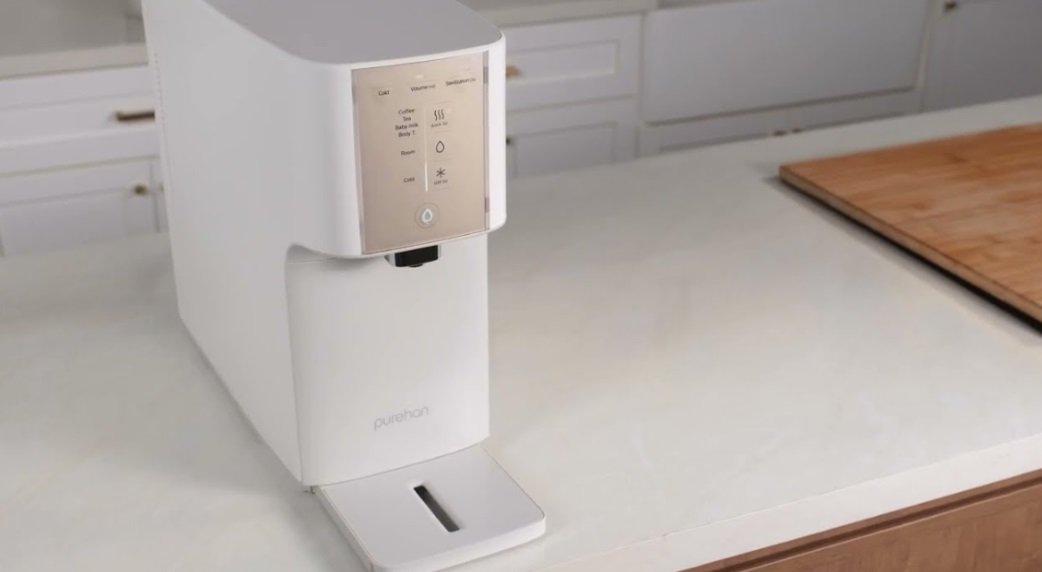
In a world where access to clean and safe drinking water is paramount, water purifiers have emerged as essential appliances for households and businesses alike. With concerns about water quality and contaminants on the rise, the demand for effective water purification solutions has intensified. In this article, we will delve into the significance of water purifiers, their various types, benefits, and the pivotal role they play in ensuring access to healthy and contaminant-free drinking water.
The Importance of Water Purification
Contaminant Removal:
Water from natural sources, such as rivers, lakes, or groundwater, may contain impurities and contaminants that pose risks to human health. These contaminants can include bacteria, viruses, heavy metals, pesticides, and other pollutants. Water purifiers are designed to remove or significantly reduce these harmful substances, ensuring that the water consumed is safe and clean. For more information, you can visit this link: https://purehan.sg/.
Improved Taste and Odor:
In addition to health concerns, water purifiers enhance the taste and odor of drinking water. Many people find that purified water has a fresher, cleaner taste compared to tap water. Purification technologies help eliminate the presence of chlorine, sediments, and other compounds that may contribute to unpleasant tastes and odors.
Protection Against Waterborne Diseases:
Contaminated water is a breeding ground for waterborne diseases. Bacteria and viruses present in untreated water can lead to illnesses such as cholera, typhoid, and gastroenteritis. Water purifiers act as a barrier against these diseases, providing a reliable means of ensuring the health and well-being of individuals and communities.
Environmental Sustainability:
The use of water purifiers contributes to environmental sustainability by reducing reliance on bottled water. Bottled water consumption not only generates plastic waste but also has environmental impacts related to production, transportation, and disposal. Water purifiers offer a more eco-friendly alternative, helping to mitigate the environmental footprint associated with bottled water.
Types of Water Purifiers
Activated Carbon Filters:
Activated carbon filters are common in many household water purifiers. These filters use porous carbon to adsorb impurities and contaminants. The activated carbon has a large surface area that attracts and traps pollutants, including chlorine, sediment, and organic compounds. This type of filter is effective in improving taste and reducing odors.
Reverse Osmosis (RO) Purifiers:
Reverse osmosis is a filtration process that uses a semi-permeable membrane to remove a wide range of contaminants, including bacteria, viruses, and dissolved salts. RO purifiers are known for their effectiveness in producing high-quality drinking water. However, they may also remove some essential minerals, and the filtration process can be relatively slow.
Ultraviolet (UV) Purifiers:
UV water purifiers use ultraviolet light to deactivate and eliminate bacteria, viruses, and other microorganisms. The UV light disrupts the DNA of these pathogens, rendering them unable to reproduce and cause infections. UV purification is a chemical-free method that leaves no residual taste or odor in the water.
Ion Exchange Resin Filters:
Ion exchange resin filters are effective in removing minerals, such as calcium and magnesium, from water. These filters work by exchanging ions in the water with ions in the resin, resulting in softened water. Ion exchange resin filters are commonly used in water softeners to prevent the buildup of scale in plumbing and appliances.
Ceramic Filters:
Ceramic filters consist of porous ceramic material that can effectively filter out bacteria, sediment, and debris. These filters are often combined with activated carbon to enhance their purification capabilities. Ceramic filters are durable and can be easily cleaned and reused.
Benefits of Water Purifiers
Health and Safety:
The primary benefit of water purifiers is the assurance of health and safety. By eliminating or reducing contaminants, purifiers provide access to clean and safe drinking water, protecting individuals from waterborne diseases and health risks associated with impurities.
Cost Savings:
Investing in a water purifier can lead to long-term cost savings compared to purchasing bottled water. The initial investment in a purifier is often outweighed by the cumulative costs of buying bottled water over time. Additionally, the environmental impact of reducing plastic waste contributes to a more sustainable and cost-effective solution.
Convenience:
Having a water purifier at home ensures a convenient and continuous supply of clean water. It eliminates the need to rely on store-bought bottled water or cumbersome water boiling methods. With a water purifier, fresh and purified water is readily available at the turn of a tap.
Environmental Impact:
Opting for a water purifier over bottled water reduces the environmental impact associated with plastic production, transportation, and disposal. The shift towards sustainable water consumption aligns with global efforts to reduce plastic waste and promote eco-friendly practices.
Improved Taste and Quality:
Water purifiers enhance the taste and quality of drinking water by removing impurities, odors, and unwanted chemicals. The result is a refreshing and pure taste that encourages increased water consumption, promoting overall health and well-being.
Conclusion
Water purifiers play a crucial role in ensuring access to safe, clean, and great-tasting water. As concerns about water quality continue to grow, the importance of effective water purification solutions becomes increasingly evident. Whether it’s removing contaminants, improving taste, or contributing to environmental sustainability, water purifiers stand as transformative appliances that address multiple aspects of water consumption.
Investing in a water purifier is not just a practical choice for individual households; it is a step towards promoting global health, environmental responsibility, and sustainable living. As technology advances, the evolution of water purification methods continues, offering consumers increasingly efficient and tailored solutions to meet their specific needs and preferences.






